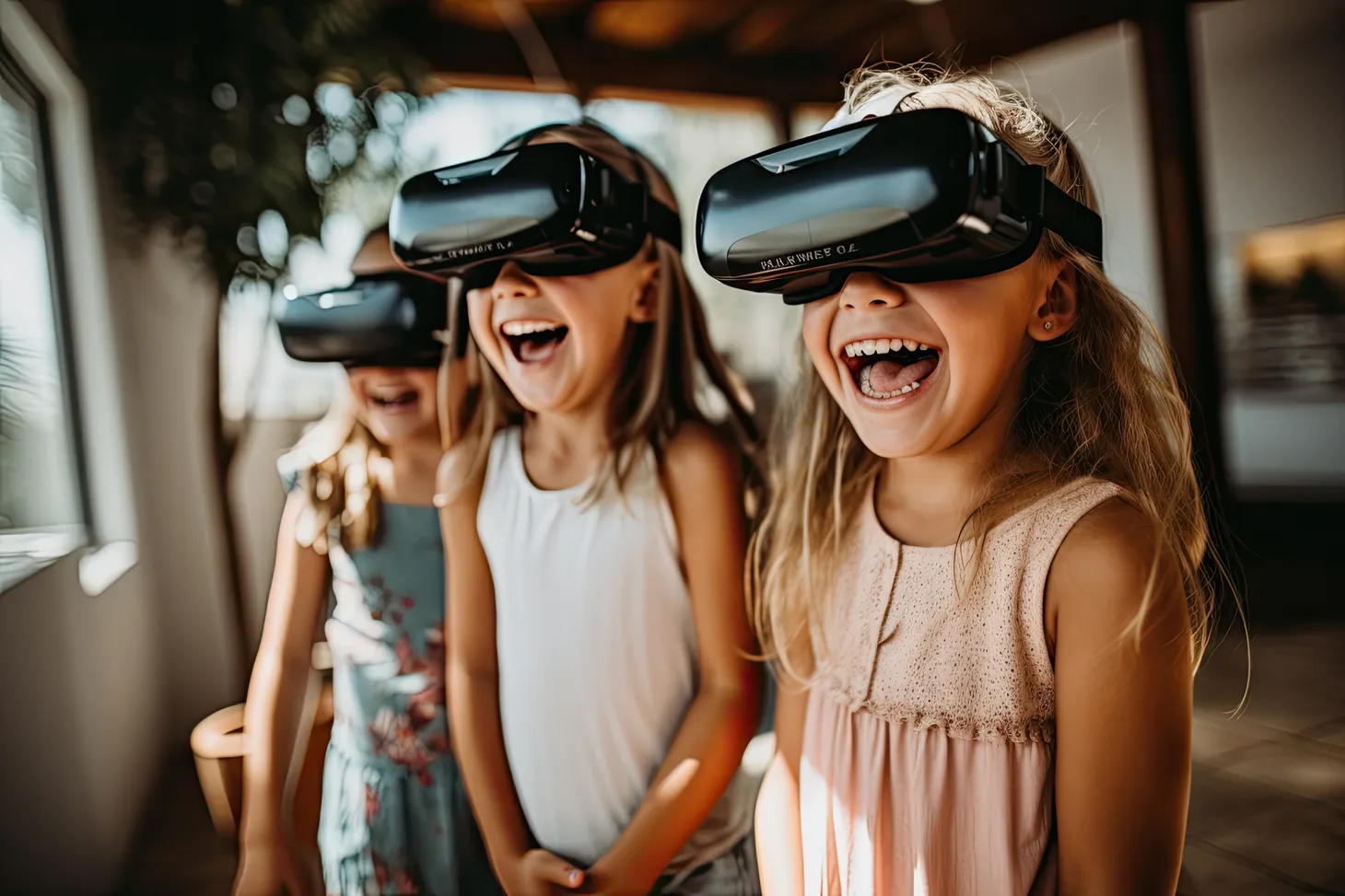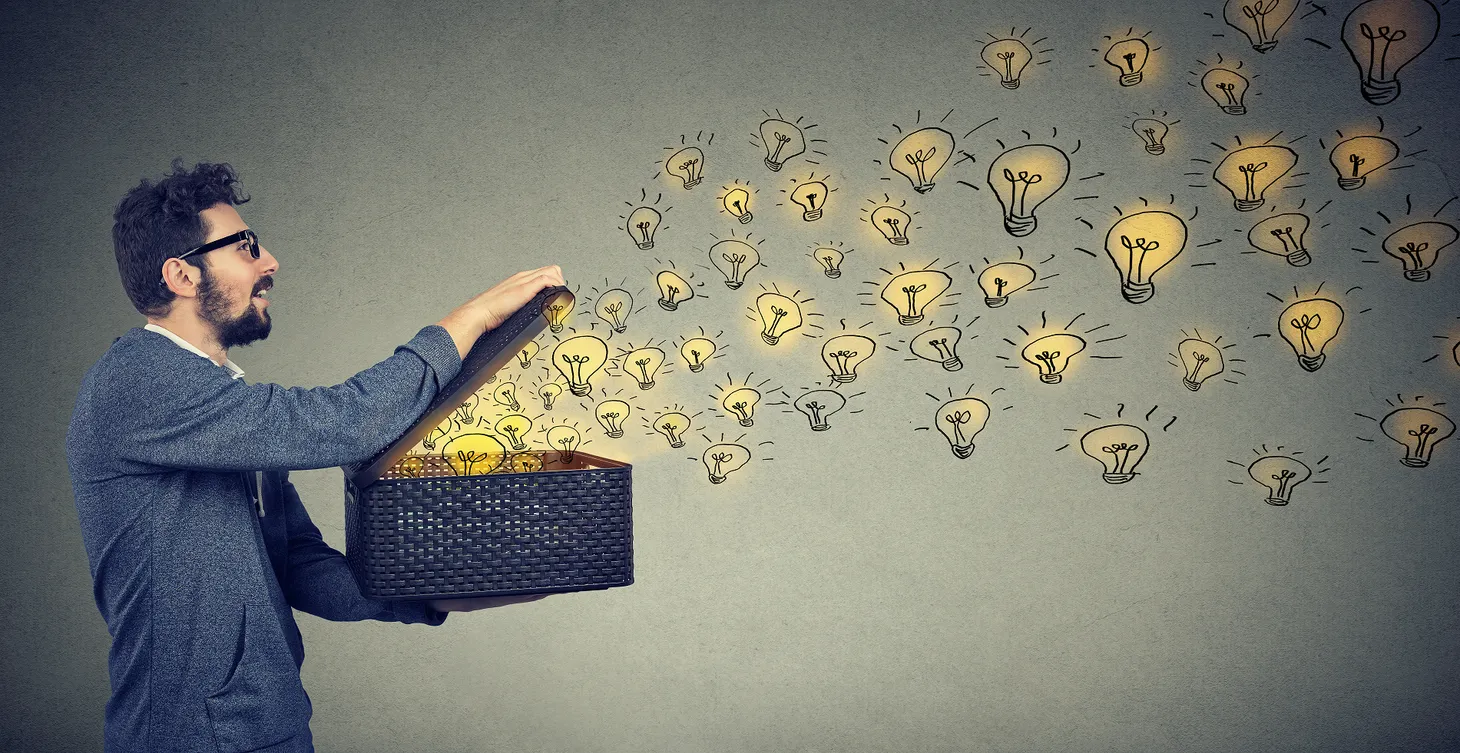Imagining a Better Future: Keys to Human Progress
Playing it safe will lead to the decay of human progress. The way to a great future is through innovation and creativity. This may sound like something from the dawn of time, but it has never been more true in today’s world. Innovation and creativity are at the heart of our economic recovery, our en

Playing it safe will lead to the decay of human progress. The way to a great future is through innovation and creativity.
This may sound like something from the dawn of time, but it has never been more true in today's world. Innovation and creativity are at the heart of our economic recovery, our environmental sustainability, and all aspects of human progress.
What amazes me most about this is that we have so much talent — yet some people seem determined not to use it. We're stuck in a rut: too many people are just going with their gut instead of using their heads or their hearts; others seem paralyzed by fear and uncertainty; still, others want to keep playing it safe rather than taking risks or experimenting with new ideas. But if we don't use our talent, we will lose it.
What's not clear is whether we can find our way out of the rut, or whether we've become too comfortable in doing things the same old ways. We're facing a tough battle with competing forces that are fueling a vicious cycle of decay. These are scary times, but they also offer opportunities for positive change if we seize the moment and focus on making things work rather than just talking about them.
Human History of Benefiting From Creativity and Innovation
From the earliest days of human existence, we have been driven by a need to create and innovate. Our earliest ancestors were creative in their efforts to survive in a harsh and unforgiving world. They invented tools and weapons and discovered new ways to exploit the natural resources around them. In more recent times, humans have continued to be creative in their efforts to improve the world around them. We have invented cars, planes, and spacecraft; created new medicines and technologies; and explored new frontiers both on Earth and in space.
The human race has come a long way thanks to our creativity and innovation. And there is no doubt that we will continue to create and innovate as we move forward.
Recent Examples of Human Progress
We have developed ways to generate power without harming the environment through innovation and creativity. Electric cars are another great example—with enough creative thinking, we can reduce our reliance on fossil fuels. And finally, organic farming is growing in popularity all around the world as people become more aware of the benefits of sustainable agriculture that reduces environmental damage.
Define What Do We Mean By Human Progress
When we talk about human progress through innovation and creativity, we're talking about the ways in which humans have been able to improve their lives through new inventions and ideas. These improvements can address the range of possibilities, such as environmental damage and global poverty, while increasing human flourishing and well-being by creating a better future.
These things represent major steps forward for humanity, and they're all made possible by our ability to come up with new ways of doing things. So, when we talk about human progress, we're really talking about the ability of humans to innovate and create new solutions to old problems.
I'll be the first to admit that this is not a straightforward task.
As many of you have probably already found out, innovation can sometimes seem like a distant goal. But it's worth trying to leave a better world for our kids, and our grandkids.
The Role of Innovation And Creativity in Human Progress
In order to achieve this innovation goal, we have to push the boundaries of what is possible. We have to take some risks knowing that it may not always pay off.
The key is learning from our mistakes and trying new things until we find something that works. This might not seem easy at first, but I think you'll find it is worthwhile. We all have to realize that our present reality is only one potential outcome, and there are plenty of other possibilities out there just waiting to be stumbled upon.
So, if playing it safe leads to decay, what does taking a risk get you?
In order for us to achieve any kind of progress, we have to take risks. We have to realize that safety is not the key to success because it keeps us stuck in place.
Human beings are very resourceful creatures because of our ability to think outside the box and find creative solutions to problems, but all of this potential goes wasted if we're too scared of failure. We all have to learn that taking a chance can often be worth it, and sometimes it will even lead us to something truly great.
Is Creativity and Innovation Part of Human Nature?
It's hard to imagine a world without creativity and innovation. These are two of the most important aspects of human nature. They allow us to explore new possibilities and create new things. Creativity and innovation aren't just about making new things. They're also about making old things better. We can see this in every aspect of our lives, from the way we live our lives to the way we work.
There's no doubt that creativity and innovation are essential parts of human nature. They allow us to thrive and grow in a constantly changing world. The ability to be creative and innovative is not something that is limited to a few people. It is something that everyone can develop. All it takes is a willingness to experiment and take risks.
Is All Human Progress Good?
While it's true that human progress has led to some amazing inventions and ideas, it's also led to some dark chapters in our history.
For every step forward we take as a species, we seem to take two steps back. So, is all human progress good? I don't think there's an easy answer to this question. If you look strictly at technological advancements and the economy, things seem to be going great. But if you look more closely at some of these advancements and what they've actually cost us as a species, we might not be better off than we were before these advances happened.
Some good examples of human progress include the development of vaccines, the discovery of antibiotics, and the rise of democracy.
Some awful examples of human progress include the development of nuclear weapons and the rise of fascism.
Guidelines For Human Progress
When it comes to human progress, we need to be careful about what we wish for. We need to weigh the benefits against the costs. We need to make sure that we're not sacrificing our values in the pursuit of progress.
The guidelines I believe we should use to evaluate human progress are:
1) We should always be mindful of the unintended consequences of our actions.
One of the chief dangers of unintended consequences is that they can often be out of our control. They can lead to things happening that we never wanted, and can often have a negative impact on society. It's important that we are mindful of the unintended consequences of our actions when it comes to human progress because it can help us avoid making mistakes that could have a negative impact on the future.
2) We should only pursue progress if it is actually going to make us better as a species.
Many people think that making improvements and progress is always a good idea. But what do you mean by “making improvement?” Is it because of the potential to make our lives better? The potential to make us an even more efficient society than we already are now? Or is it the future that passes in front of us, constantly inspiring us with new ideas, new visions, and hopes for what could be if only we take those chances, take those risks?
The answer is unclear. For some, they want sweeping change, new ideas, and all other conceivable improvements. They imagine themselves as a member of a movement that will lead humanity into their ideal future, such as improving economic power and human rights.
You must be careful to only pursue progress if it is actually going to make us better as a species because some of these “advances” are more like disrupting elements that will have negative consequences for our future or society.
The future doesn't belong to a select few. The future belongs to all of us.
3) We should never sacrifice our values in the pursuit of progress.
It's important that we don't sacrifice our values in the pursuit of progress because if we do, we may not achieve the positive outcomes that we're hoping for. We may end up with a dystopian future. This is because, without our values, we can no longer tell the difference between right and wrong. We also can no longer appreciate the good in life, which is what makes it worth living.
If we will sacrifice our values, then there are no longer any boundaries on how far society will go.
The guidelines center on the question: “Is it worth it?”
Conclusion
Too many people are stuck in short-term thinking, which can lead them to believe that human progress will only result in disaster and dystopia. However, we must remember that human ingenuity and creativity have been responsible for some of our most incredible progress as a species.
The future of our society is in our hands. We need to be careful about the decisions we make, and weigh the benefits against the costs. But most importantly, we should never sacrifice our values in the pursuit of progress. Our kids' and grandkids' futures depend on it.
The future is not someplace we are going, but one we are creating. The paths are not to be found but made, and the activity of making them changes both the maker and the destination.
John Schaar
Phil McKinney Newsletter
Join the newsletter to receive the latest updates in your inbox.




